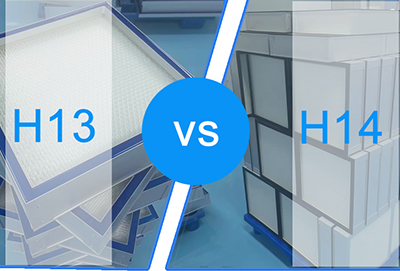 February 10, 2025
February 10, 2025
When it comes to improving indoor air quality, HEPA filters for HVAC systems are among the most effective solutions. These high-efficiency filters capture dust, allergens, mold spores, bacteria, and even some viruses, significantly reducing airborne contaminants.
But can you install a HEPA filter in your HVAC system? What are the benefits, and how do they compare to standard filters? In this guide, we’ll break down everything you need to know in simple, easy-to-understand terms to help you make an informed decision.
Definition & Efficiency
HEPA stands for High-Efficiency Particulate Air. A true HEPA filter is designed to capture at least 99.97% of airborne particles as small as 0.3 microns, including:
✔ Dust and pollen
✔ Mold spores
✔ Pet dander
✔ Bacteria and some viruses
HEPA filters use a dense network of fine fibers to trap particles through three mechanisms:
✅ Interception – Particles stick to fibers as air passes through.
✅ Impaction – Larger particles collide with the fibers and get trapped.
✅ Diffusion – Smaller particles move erratically and eventually get caught.
These combined processes make HEPA filtration one of the most effective air cleaning methods available.
The short answer: Yes, but with limitations.
Challenges of Using HEPA Filters in HVAC Systems
1. Higher Airflow Resistance – HEPA filters are dense, which can restrict airflow in standard HVAC systems.
2. Increased Energy Usage – Your system may have to work harder to push air through a HEPA filter.
3. Potential System Modifications – Some HVAC systems need upgraded fans or bypass ducts to handle HEPA filtration.
✅ HEPA-Compatible HVAC Filters – Some filters offer high efficiency without restricting airflow.
✅ Standalone HEPA Filtration Units – Air purifiers with HEPA filters can complement your HVAC system.
✅ HVAC System Upgrades – Installing a HEPA filtration add-on unit ensures compatibility.
Before installing a HEPA filter in your HVAC system, consult a professional to avoid airflow issues.
1. Removes Airborne Contaminants
HEPA filters eliminate fine particles, improving indoor air quality and reducing pollutants.
2. Helps with Allergies and Asthma
HEPA filters capture pollen, pet dander, and mold spores, minimizing allergy symptoms.
3. Improves Health and Well-Being
Cleaner air means fewer respiratory issues and better overall health, especially for people with lung conditions.
4. Enhances Virus and Bacteria Filtration
While not a standalone solution, HEPA filters help reduce airborne bacteria and some viruses when used with UV-C light or electrostatic filters.
| Feature | Standard HVAC Filter (MERV 8-13) | HEPA Filter (MERV 17-20) |
|---|---|---|
| Particle Removal | 30%-90% (depending on MERV rating) | 99.97% for 0.3-micron particles |
| Airflow Restriction | Low to moderate | High |
| HVAC System Compatibility | Yes | May require modifications |
| Allergen & Pollutant Removal | Moderate | Excellent |
 Sep. 21, 2023
High Temperature H13 Filter ordered by Mexican customer
Sep. 21, 2023
High Temperature H13 Filter ordered by Mexican customer
An order of High Temperature HEPA Filter placed by a US client has been successfully delivered.
 Aug. 20, 2024
Why H13 and H14 HEPA Filters Stand Out as the Best Air Treatment Options?
Aug. 20, 2024
Why H13 and H14 HEPA Filters Stand Out as the Best Air Treatment Options?
 Jan. 08, 2025
Everything You Need to Know About Activated Carbon Air Filters
Jan. 08, 2025
Everything You Need to Know About Activated Carbon Air Filters